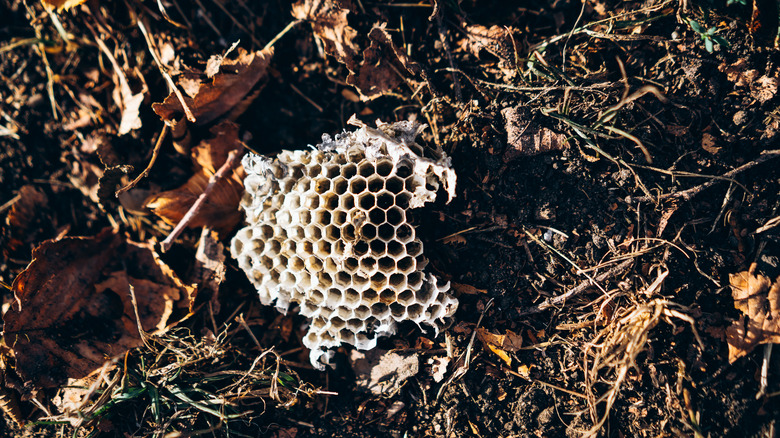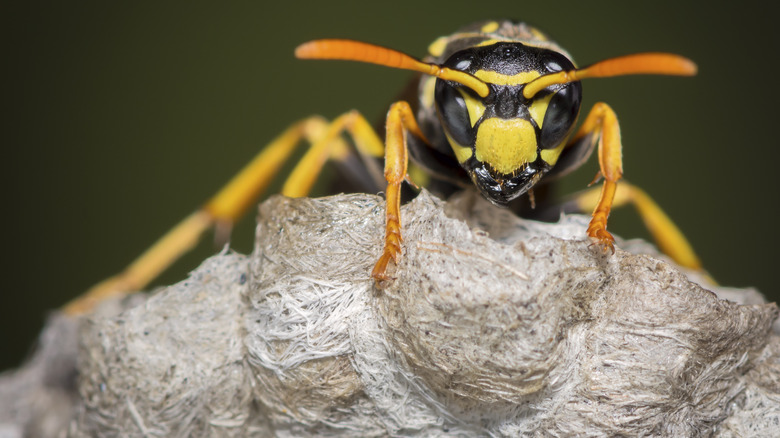The Popular Kitchen Staple That'll Help Protect Your Yard From Ground Wasps
Ground wasps can become a nuisance in your yard, especially if they decide to build nests in areas where you spend time. Ground wasps, such as yellowjackets and digger wasps, are species that burrow into the soil to create their nests, often becoming aggressive if disturbed. One surprising and effective way to repel them is by using apple cider vinegar. The strong smell of apple cider vinegar is highly unpleasant to wasps, making it a natural deterrent. By strategically placing small containers of the vinegar around areas where ground wasps tend to gather — such as the edges of your lawn or near garden beds — you can create an invisible barrier that discourages these pests from setting up camp. However, it's important to note that this method works as a repellent rather than a killer, meaning the wasps will simply avoid the treated areas instead of being harmed.
To use apple cider vinegar effectively, mix it with water and a few drops of dish soap, which will help trap the wasps if they come into contact with the mixture. Place this solution in shallow containers around problem areas. This solution is non-toxic to pets and beneficial insects, but don't aggressively spray it everywhere, as this could disrupt helpful pollinators like certain wasp species that contribute to pest control and plant pollination. Apple cider vinegar offers a balanced way to protect your yard from ground wasps without wiping out beneficial insects.
Other natural methods to keep wasps away from your yard
While apple cider vinegar can effectively repel ground wasps, there are other natural methods you can combine with this approach to further protect your yard. For instance, using slices of cucumber in your outdoor areas, such as around patios or decks, can help deter wasps. The acidity of cucumbers is unpleasant for wasps, making it an excellent addition to your anti-wasp strategy. Simply place cucumber slices on plates or directly onto outdoor furniture to keep wasps from hovering near your relaxation spaces. This method works best in areas where wasps are likely to land, and it's an eco-friendly alternative to chemical repellents. Another key to reducing the presence of ground wasps is understanding their behavior and what attracts them.
When the pest season starts, people often turn to vinegar, thinking it will solve their wasp problem quickly. However, using vinegar to spray wasps directly, particularly on their hives, can backfire. It might repel them temporarily, but it's also likely to anger the colony, leading to an increased risk of being stung. This approach is ineffective in actually killing the wasps and can be dangerous, as disturbed wasps become more aggressive. The better solution is to use apple cider vinegar in traps to reduce the wasp population safely. By combining apple cider vinegar with dish soap and a bit of sugar, you can lure wasps into a container where they will drown.

